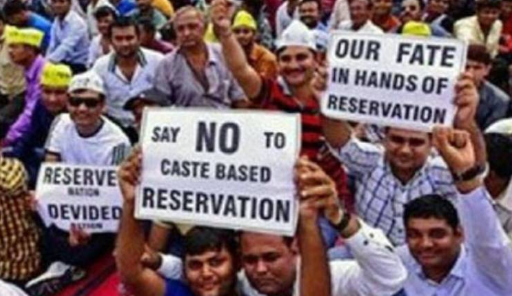Navigating the Complexities: Religion-Based Reservations in India (GS Paper 2, Polity & Governance)

Introduction
- As India's election season stirs debates on reservation policies, particularly those based on religion, a nuanced understanding of the constitutional framework, historical context, and practical implications is essential.
- The discourse surrounding religion-based reservations intersects with the foundational principles of equality, equity, and secularism enshrined in the Indian Constitution, prompting a multifaceted dialogue on social justice and representation.
Evolution of Reservation in India
- India's journey towards social justice has been shaped by constitutional provisions aimed at rectifying historical injustices and addressing societal imbalances.
- While the Constitution initially emphasized equality, it later embraced equity through affirmative action measures to uplift socially and educationally backward classes, Scheduled Castes (SCs), and Scheduled Tribes (STs).
- This shift reflects a commitment to fostering inclusive development and mitigating entrenched inequalities.
Religion-Based Reservations: Theory and Practice
- The Indian Constitution prohibits discrimination based solely on religion, yet allows for affirmative action through reservations for backward classes, a category encompassing religious minorities demonstrating social and educational backwardness.
- This nuanced approach acknowledges the complex intersections of caste, religion, and socioeconomic status, recognizing the diverse manifestations of marginalization within society.
Examples of Muslim Reservations in States
Several states have implemented reservation policies benefiting Muslims, acknowledging their historical marginalization and social backwardness:
- Kerala: Sub-quota for Muslims within the OBC quota.
- Karnataka: Recognition of 36 Muslim castes as backward.
- Tamil Nadu: Sub-quota for backward Muslims within OBC reservation.
- Andhra Pradesh & Telangana: Attempts to classify Muslims as a backward class.
Constitutional and Judicial Insights
- The Supreme Court has affirmed that reservations can extend to socially and educationally backward religious communities, aligning with the principle of substantive equality.
- High court rulings have further upheld the compatibility of religion-based reservations with secularism, emphasizing the imperative of addressing historical disadvantages across religious lines.
Challenges and Future Prospects
- While religion-based reservations signify a step towards inclusive development, challenges persist in balancing constitutional mandates with practical implementation.
- Debates on the expansion and efficacy of reservation policies underscore the complexity of navigating social justice imperatives within a pluralistic society.
- Addressing these challenges requires nuanced policy approaches, informed by a commitment to equitable representation and inclusive growth.
- In navigating the complexities of religion-based reservations, India continues to grapple with questions of social justice, equality, and secularism, reaffirming the imperative of fostering a society where all individuals have equal opportunities for advancement and participation.


